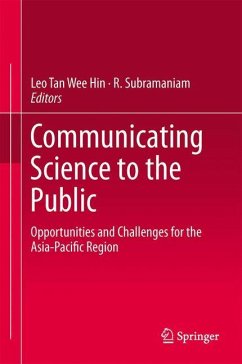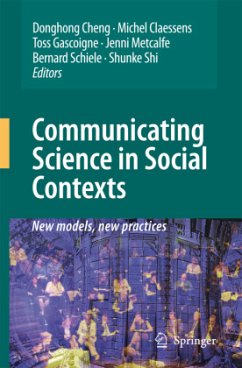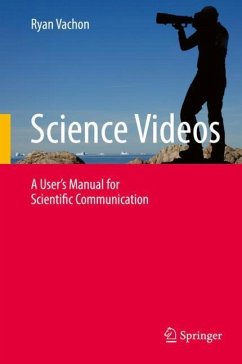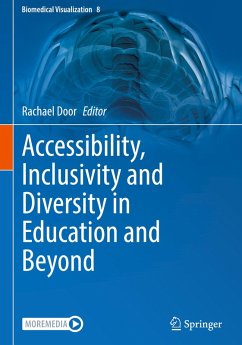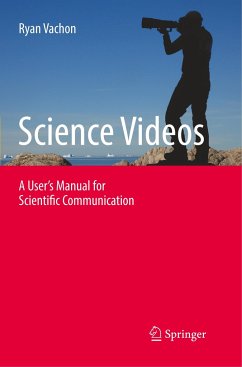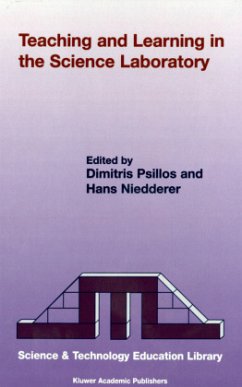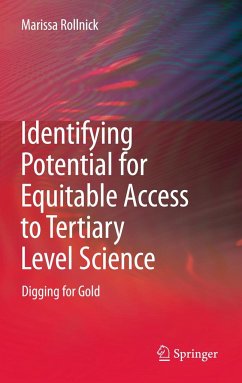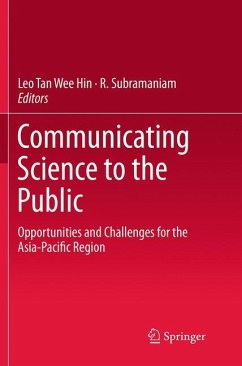
Communicating Science to the Public
Opportunities and Challenges for the Asia-Pacific Region
Herausgegeben: Tan Wee Hin, Leo; Subramaniam, R.
Versandkostenfrei!
Versandfertig in 6-10 Tagen
76,99 €
inkl. MwSt.

PAYBACK Punkte
38 °P sammeln!
This book explores effective approaches for communicating science to the public in developing countries. Offering multiple perspectives on this important topic, it features 17 chapters that represent the efforts of 23 authors from eight countries: Australia, Bangladesh, India, Ireland, New Zealand, USA, Singapore and South Africa.Inside, readers will find a diversity of approaches to communicate science to the public. The book also highlights some of the challenges that science communicators, science policy makers, science teachers, university academics in the sciences and even entrepreneurs m...
This book explores effective approaches for communicating science to the public in developing countries. Offering multiple perspectives on this important topic, it features 17 chapters that represent the efforts of 23 authors from eight countries: Australia, Bangladesh, India, Ireland, New Zealand, USA, Singapore and South Africa.
Inside, readers will find a diversity of approaches to communicate science to the public. The book also highlights some of the challenges that science communicators, science policy makers, science teachers, university academics in the sciences and even entrepreneurs may face in their attempts to boost science literacy levels in their countries. In addition, it shares several best practices from the developed world that may help readers create communication initiatives that can lead to increased engagement with science in communities in the Asia Pacific region and beyond.
Given the pervasive influence of science and technology in today's society, their impact will only increase in the years to come as the world becomes more globalized and the economies of countries become more inter-linked. This book will be a useful source of reference for developing countries looking to tap into the potential of science for nation building and effectively engage their communities to better understand science and technology. Supported by the Pacific Science Association, Hawaii.
Inside, readers will find a diversity of approaches to communicate science to the public. The book also highlights some of the challenges that science communicators, science policy makers, science teachers, university academics in the sciences and even entrepreneurs may face in their attempts to boost science literacy levels in their countries. In addition, it shares several best practices from the developed world that may help readers create communication initiatives that can lead to increased engagement with science in communities in the Asia Pacific region and beyond.
Given the pervasive influence of science and technology in today's society, their impact will only increase in the years to come as the world becomes more globalized and the economies of countries become more inter-linked. This book will be a useful source of reference for developing countries looking to tap into the potential of science for nation building and effectively engage their communities to better understand science and technology. Supported by the Pacific Science Association, Hawaii.



